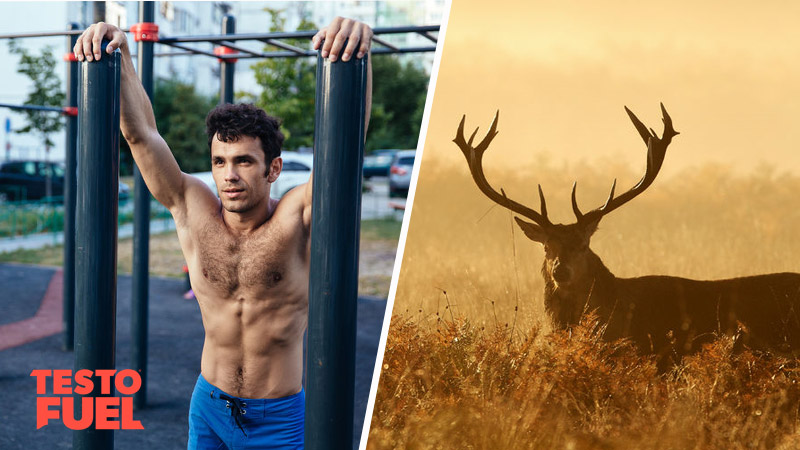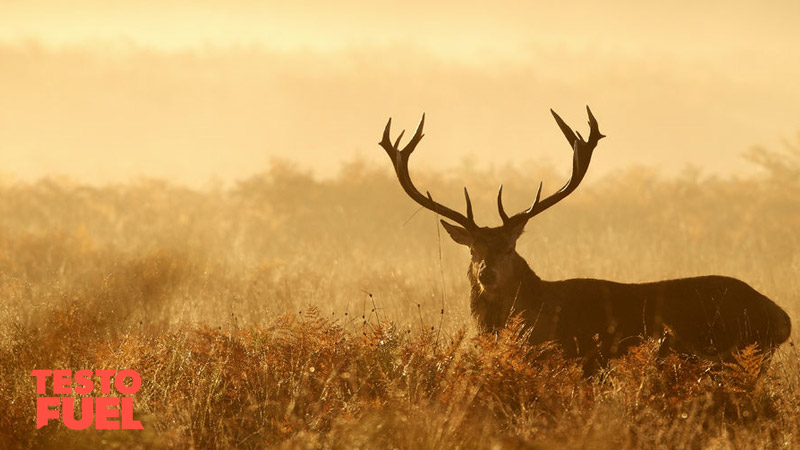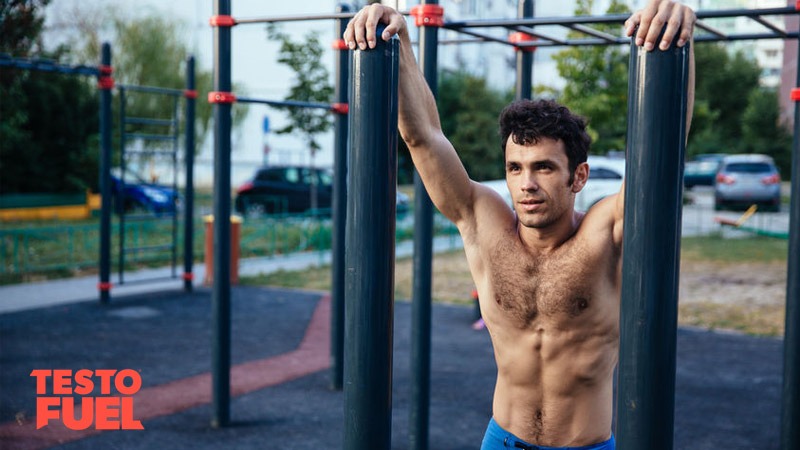TestoFuel Blog : Make Gains & Pack on the Muscle

From time to time you’ll hear about the release of a supplement that claims to be the next big thing. A life changer that’ll grant you all of the muscle mass and strength you ever wished for.
And whilst it’s true that some good quality supplements can help to improve your physique; some just don’t. They are built on stories, anecdotes and celebrity endorsements – but not science.
In this article we’ll take a look at deer antler velvet – a supplement derived from the crushed antlers of deer and elk.
Whilst it’s claimed to have positive effects on everything from endurance and strength to sexual performance, we take a look at the actual science behind it. Letting you know if it actually delivers or not.
Here’s what we’ll cover:
Antler velvet is the crushed cervus, or base of mammal antlers. It is more commonly obtained from deer but can also be from elk too.
During developmental stages, antlers are cartilaginous and pre-calcified. Throughout this phase, they are covered in fine hairs that have a look and feel of velvet. It is during this phase that the antler is removed, harvested and crushed.
They are the only mammalian organs that, once lost, can fully grow back [1] therefore it is a process that can be repeated annually.
Antler velvet has been used traditionally in China to treat a number of disorders. The supposed benefits include joint health, improved energy levels, reduced inflammation, normalization of blood pressure and increased general health.
The reason why these animals can regenerate their antlers might be down to the fact that during development, T levels and growth hormone levels in the animal increase significantly. When their antlers naturally fall off the loss is triggered by a fall in T levels [2].
From a nutritional point of view, the crushed antler provides a number of essential nutrients. You’ll find polysaccharide sugars here, as well as a number of fatty acids. There is also a modest amount of collagen and cholesterol found in the product too.
It also provides a number of bioactive products including calcium, phosphorous and sodium. Interestingly Antler Velvet also contains nutrients that have been found to boost testosterone, such as magnesium and zinc.
One large systematic review [3] investigated all relevant health-related studies on deer and elk velvet supplements. Each study had to be a high-quality randomized control trial to be included in the review, so as to make sure that only the best, most rigorous studies were included.
From the studies included in the review, these are the proposed benefits that were studied:
When the results of these studies were assessed, 2 out of 7 trials showed some positive effects for osteoarthritis but the effect scores were minimal.
That means that although there were significant results, they were not convincing. No other benefits were found throughout the remaining studies either.
Traditional medicine benefits aside, the fuzz of the antler supposedly contains insulin-like growth factor 1 (IGF-1). This is one of the likely causes of them to grow back and the main marketing angle for supplement makers. If it contains anabolic hormones then surely it can boost testosterone?
However, the actual content is negligible.
The question is – can the anabolic content of deer antler velvet boost testosterone or is it just another supplement sold on misguided science?
Let’s have a look at some of the studies…

As an anabolic molecule, IGF-1 plays an important role in development and building muscle. It can also theoretically trigger increases in testosterone by acting directly on the cells that trigger T production. If deer antler were to provide these effects then it would be a very interesting product.
But other than the odd celebrity endorsement or two, there’s actually very little scientific evidence to draw upon though. And the studies that investigate these hormones aren’t convincing either. Here are the most relevant ones:
One study published in the International Journal of Sport Nutrition & Exercise Metabolism [4] found that a dose of 1.5g of velvet antler for 11 weeks failed to increase testosterone. Neither did it boost other androgenic hormones such as IGF-1 or have any significant effect on strength or maximal aerobic workload either.
Study #2.
Velvet antler was also trialled in a group of 24 male, trained rowers [5]. They were split into either an experimental or placebo group with the experimental group issued 560 mg per day of the supplement. After a 10-week study period was completed both groups were assessed on their leg and bench press strength, 2000m rowing time and hormone levels.
The antler velvet did not alter any fitness, power or hormone test score at all when compared to the placebo group, including testosterone levels.
Another study, this time published in the Archives of Sexual Behaviour [6], wanted to examine the supposed positive effects of antler velvet on sexual function. The researchers said that although it had been used for that reason for many years in traditional medicine, they had concerns that the claims had never properly been investigated in a lab setting.
To test this concern, 32 volunteers aged between 45-65 years were given 1 g of the supplement each day for 12 weeks. With this sort of high dosage you’d expect to see some changes if it was to work at all.
After the 12 weeks the men were administered a questionnaire to assess their libido and sexual appetite. They also had blood tests taken to look at any changes to their sex hormone levels too. But there were no changes in the group at all, forcing the researchers to conclude that in normal males there was no advantage in taking deer velvet to enhance sexual function or male hormone levels.

Yes and no. From an athlete’s perspective the World Anti-Doping Agency (WADA) initially banned all deer antler products due to its IGF-1 content. This is because the peptide hormone and its analogues are already on the banned substance list [7].
This ban was raised not long afterwards, as the IGF-1 content was found to be negligible. That doesn’t mean it’s in the all clear though as IGF-1 itself still remains on the banned list.
What you need to know here is that some deer antler velvet containing T-booster supplements may contain enough IGF-1 to trigger a positive reading on a blood test. In fact, out of 6 commercially available supplements tested, 4 contained enough of the peptide to trigger a WADA ban [8]. That was in supplements marketed as ‘natural’ as well.
For that reason we would advise all competitive athletes to treat it with caution or even to avoid the supplement altogether. The risks may far outweigh the minimal (if any at all) benefits.
Deer antler velvet is derived from the crushed antlers of developing deer or elk. It is a supplement that has been used for thousands of years in China for a number of different disorders.
Although it contains trace amounts of IGF-1 research shows that it doesn’t improve testosterone or related anabolic, androgenic hormones.